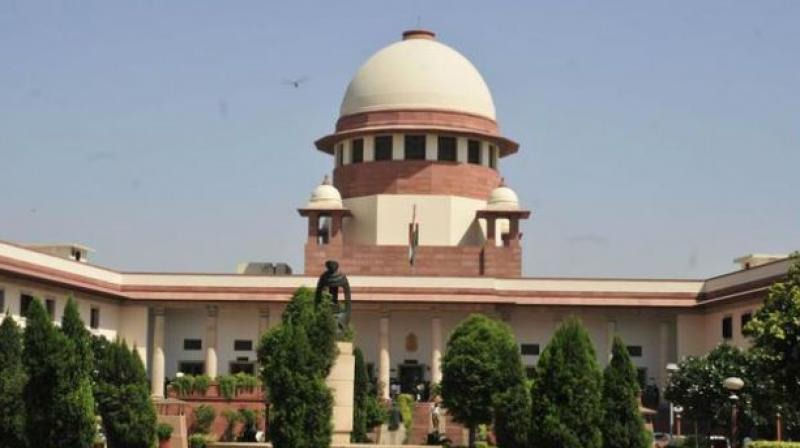Right to die with dignity' is part of right to life, says Supreme Court
Justices Sikri, Chandrachud and Ashok Bhushan gave concurring judgements with different reasons.;

New Delhi: In a landmark and progressive judgement, the Supreme Court on Friday held that ‘right to die with dignity’ is part of right to life, a fundamental right under Article 21 of the Constitution, and allowed “living will” where, an ailing adult in his conscious mind, is permitted to refuse medical treatment or voluntarily decide not to take medical treatment to embrace death in a natural way.
A person in persistent vegetative state (PVS) can execute an “advance medical directive” or a “living will” to refuse medical treatment, the court said, laying down safeguards to prevent misuse of the provision to stop medical treatment of a terminally ill patient who reached a point of no return.
In a 538-page historic verdict, a five-judge bench headed by Chief Justice Dipak Misra said, “The right to privacy protects autonomy in making decisions related to the intimate domain of death as well as bodily integrity. Recognition of the right to accept or refuse medical treatment is founded upon autonomy.”

The apex court laid down principles relating to the procedure for execution of advance directive or “living will” and spelt out guidelines and safeguards to give effect to passive euthanasia in both circumstances, that is where there are advance directives and where there are none.
“The directive and guidelines shall remain in force till Parliament brings a legislation in the field,” the Chief Justice of India said.
The bench, which also included Justices A.K. Sikri, A.M. Khanwilkar, D.Y. Chandrachud and Ashok Bhushan, gave the decision on a petition filed by NGO Common Cause in 2005 seeking a declaration that “right to die” is part of right to life under Article 21 of the Constitution.
Justices Sikri, Chandrachud and Ashok Bhushan gave concurring judgements with different reasons.
Quoting the recent nine-judge bench verdict holding right to privacy as a fundamental right, the court said the right to privacy resides in the right to liberty and in the respect of autonomy.

